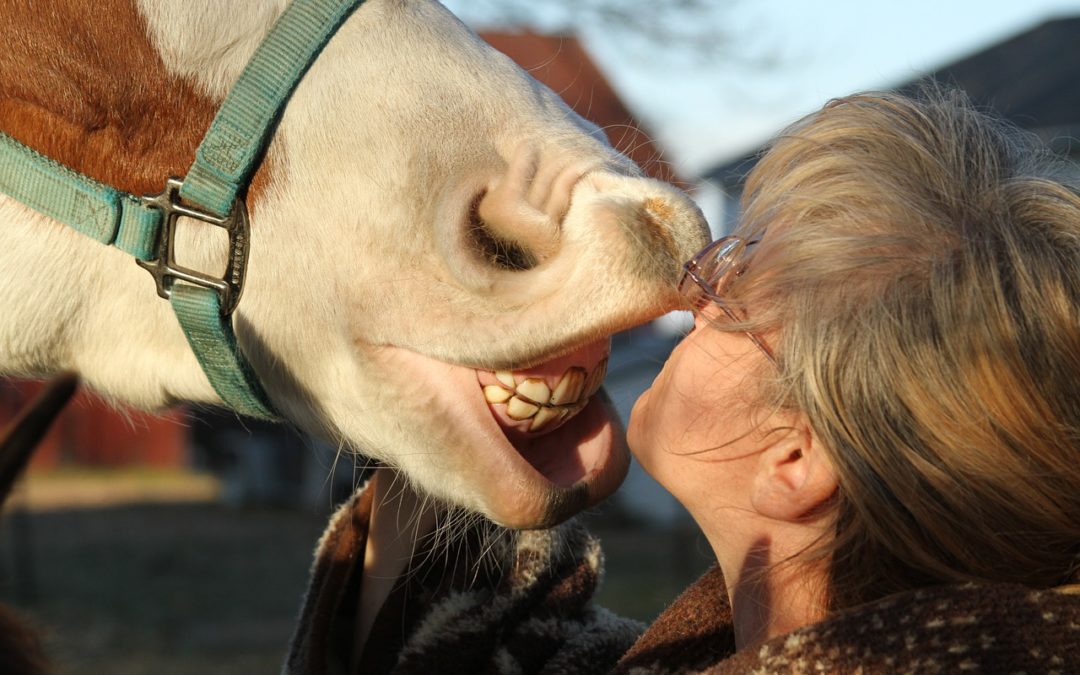Horses require regular dental procedures, commonly called “Teeth Floats”, to keep their teeth and mouth healthy.
Animal Medical Center of Wyoming can perform this procedure for your horse anytime of the year to keep them healthy and to help them live a longer life.
Did you know that horses’ teeth grow continuously until about 25 to 30 years of age?! Horses in modern times have diets that are very different from their ancestors. Because of these modern diets horses have a hard time keeping their teeth worn down naturally, so they need to have their teeth filed down by veterinarians to keep them from becoming pointed and uneven. This process is called “floating”. Our Gillette Veterinarians file the teeth to make chewing surfaces relatively flat and smooth which ensures eating is pain-free. The file that is used in the procedure is called a “float”, referring to masonry tools, and that is why the procedure is called a “Teeth Float”.
Making sure the teeth are smooth is very important to your horse’s overall health. Horses, like most mammals, need to chew their food in order to achieve effective digestion. Horses chew their food by grinding from side to side. Over time, as their teeth grow and because the upper and lower jaw is unequal in size, sharp edges can form on the teeth. These sharp edges cause pain and difficulty with chewing and eating and can also cut your horse’s tongue and cheeks. Last but not least, painful ulcers and sores can result from sharp and elongated teeth rubbing on the gums and cheeks.
Animal Medical Center Veterinarians recommend, regardless of age, that your horse’s teeth be examined by our veterinarians once a year. A good time for this is when the horse comes in for spring vaccinations. Most horses will experience some kind of dental problem during their lifetime and it may be undetectable -this is why it’s important to have your veterinarian examine your horse yearly.
What are some warning signs of issues with your horses’ teeth?
- Loss of health condition such as weight loss, poor coat
- Avoidance of the bit
- Quidding, balling up partially chewed hay and spitting it out
- Dropping feed
- Foul Breath
- Slow eater
- Packing grass or hay into cheeks
The next time you have your horse’s annual exam or vaccinations here at Animal Medical Center, have our Gillette Veterinarians check your horse’s mouth. The veterinarian will feel the outside of your horses’ teeth and be able to recommend a teeth float or other dental procedure if needed. If your horse is experiencing anything unusual related to their mouth or you have any questions, please give us a call! Your horse’s mouth is a very important part of their health and well-being. It is our pleasure to keep your horse in top condition at every age.


